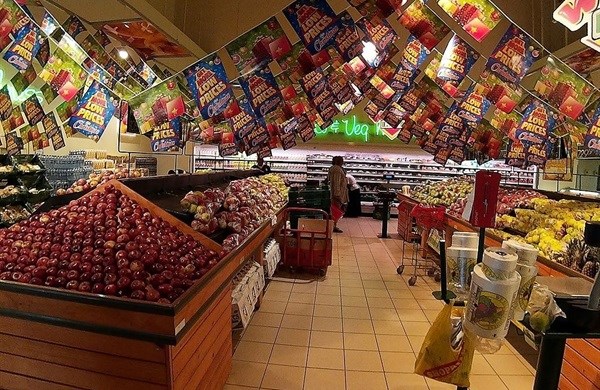Setting up shop in Africa presents challenges

Despite growth potential, market uncertainty is one of the main barriers to entry facing retailers and brands. Others include lack of clear macroeconomic policies; a volatile forex exchange market, especially in countries where rentals are charged in US$; supply chain certainty, given the lack of infrastructure in some markets; high charges on stockholdings; and the availability of quality market data.
A further contributing challenge to formal retail are the large, dynamic and established informal economies and retail markets, which play an important role in the functioning of these cities and the provision of livelihoods to a significant sector of the citizens.
East, West Africa see declining trade volumes
“High and volatile rentals (charged in dollars but payable in local currency in some countries) as well as fit-out components and stock, which are usually imported, all reflect high occupational costs which also constitute barriers to entry for many retailers,” explains Bolaji Edu, Broll Nigeria CEO.
Edu explains that the retail sector in both East and West Africa is facing challenging times. These include declining trade volumes in some centres and the fact that the growing middle-class remains averse to spending thus affecting sales volumes recorded by retailers. Retailers and investors alike need to have as much knowledge as possible about markets they want to enter and use advisors who are experts in those markets.

Three entry models
Edu says for international retailers who manage to bypass these barriers, there are three main models through which retailers and brands can enter some of sub-Saharan African retail markets, each with their own associated risk and return trade-off.
• Direct Entry model - whereby a retailer/brand enters the market through direct contact with the landlord in order to occupy space in a prospective mall. This model is quite expensive and can involve a significant amount of upfront costs as well as full knowledge and understanding of the local business environment. It, however, yields the highest returns for the retailer and allows for total control of its business operations. Examples of brands/retailers include Shoprite and Mr Price in Nigeria, Game and Jet in Ghana and in Kenya, Choppies and Carrefour.
• Joint Venture model - achieved through a partnership between a prospective retailer looking to enter the market and local retailer already in the market, is also a popular way of entry. “With this model, the prospective retailer is able to leverage on the expertise and knowledge of the local partners, thereby lowering the potential risks associated with entering a new market. In return and by nature of joint ventures, the decision-making process and profits are shared between the partners, as such full control of the business is not established for the new entrant. In Nigeria, Pick n Pay, Leventis, Carrefour and CFAO have made use of this model and Sentopia has taken this route in Ghana.
• Franchise model - from the retailer’s point of view, this model offers a much lower cost of entry, as the franchise operator bears the majority of the setting up and running costs of the business. The associated risks include limited control over the business operations. This could increase the possibility of lower standards delivered by franchise operators, which can be costly to the global brand. Examples of brands that have gone the franchise route include Nike, Tommy Hilfiger, TM Lewin, Levis, Swatch, Hugo Boss, Puma, Lacoste and Inglot in Nigeria. In Ghana, Pizza Hut, Steak Escape, The Counter and Bassilisa make use of this model and Levi’s, KFC and Naked Pizza are examples of franchise brands in Kenya.
Macroeconomic stability and growth, as well as certainty around policy and regulatory frameworks, are key ingredients for encouraging retailers to enter the market. Given the demographics, Nigeria remains on the radar of many retailers who look to benefit from the country’s long-term potential.
“An enabling business environment will reduce the short-term apprehension which many have adopted in light of the prevailing market conditions,” concludes Edu.













